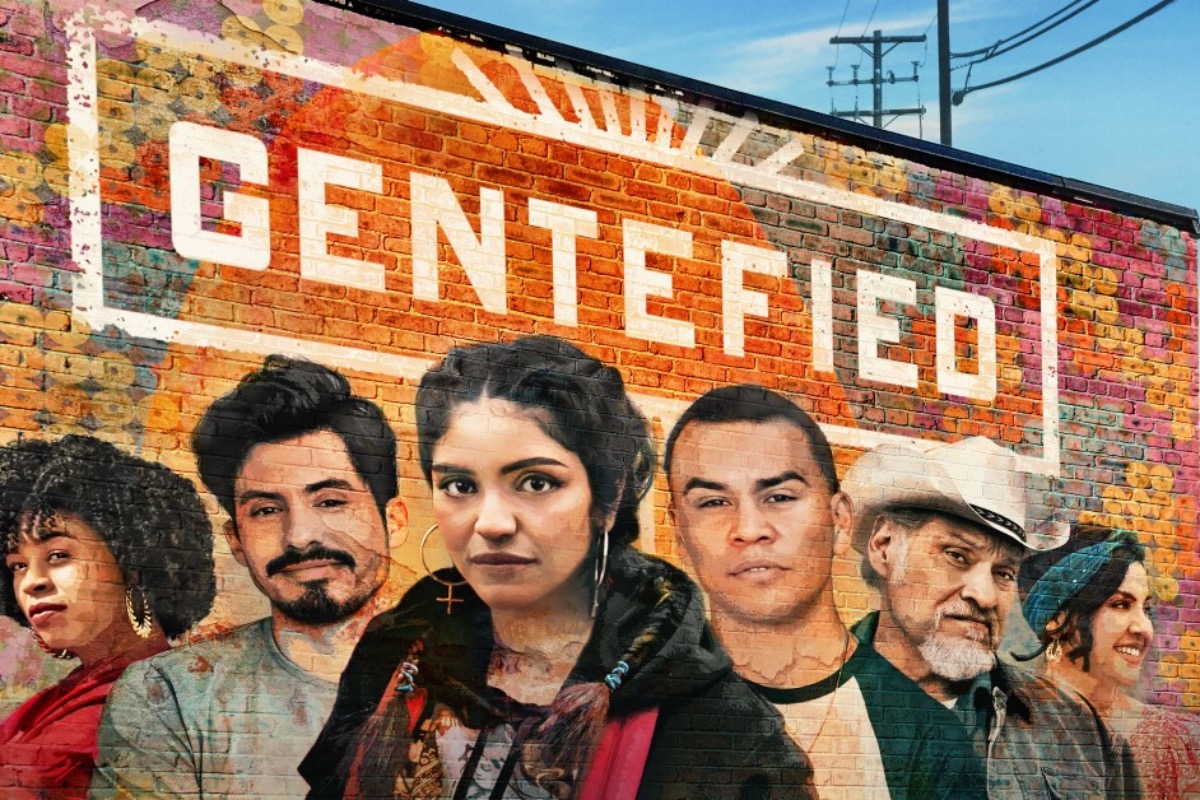

Photo courtesy of Gentefied
The show Gentefied, a series that aired on Netflix on February 21, 2020, is a story of resilience, deep family values, and defying odds. For many viewers, like myself, the characters’ journeys and complex family dynamics throughout the show are all too familiar to the realities we face every day.
Even further, the show’s take on immigration prompts a much-needed conversation regarding the trauma faced by immigrants and their families in navigating a broken immigration system. It captures the fear, uncertainty, stigma, and guilt that is often not associated with a complicated immigration process that has become increasingly politicized.
More specifically, the show allows us to dissect how western culture views and categorizes communities that do not subscribe to the “ideal” notion of what it means to be American.
Each episode dives deeper into the nuances of immigration through the lens of one of the main characters, Casimiro “Pops” Morales, who struggles to understand the politics surrounding immigration. In one episode, Casimiro outright states during a televised interview, “I am done begging. I am not a perfect immigrant. But I am not a criminal.” In this instance, Casimiro claims a stake in the immigration narrative, refusing to subscribe to respectability politics and reaffirming the importance of humanity and empathy in making decisions at the highest level of the courts.
Rather than using his credibility as a well-known local business owner, he uses his platform to elevate the voices of others with less political power and public support. In this moment, Casimiro comes to understand the importance of not negotiating his identity or fabricating a story to fit into the mainstream opinion of what is deemed worthy of citizenship. In combating common narratives surrounding immigration, the show works to display the guilt and stigma Casimiro faces while navigating the immigration process.
In the very first episode, he battles with the trauma of being detained for several months, as he experiences flashbacks even while he is surrounded by family. In addition, he confronts the negative stigma attached to the word immigrant, which he eventually learns often has a negative connotation equating to criminal, at least in the United States.
Towards the end of the first season, the show walks us through the pain and guilt he feels for having to involve his family throughout the legal process, sparking an outpour of fear and uncertainty while awaiting the outcome of his case. This provides a glimpse into the challenges posed by the prejudiced legal system and U.S. Citizenship and Immigration Services in deciding criteria for immigrants who have “earned” their right to stay.
At the end of each 30-minute episode, viewers have experienced a myriad of emotions that range from sadness and heartbreak to a sense of relief. Through this emotional ride alongside the characters, the show makes it clear that understanding one’s story with immigration requires an intersectional approach, which considers the ways in which age, sexual orientation, class, and race affect how stories are told and perceived by society.
Although viewers may be able to empathize or even relate to the story’s plot and diverse characters, the show pushes against black and white portrayals of immigration and challenges viewers to consider how winning a case is just half the battle. In truly affecting change, we must consider deconstructing Western paradigms of immigration, which fail to acknowledge new generations as byproducts of their families’ stories and history with migration.
In only two short seasons, Gentefied makes a bold and well-founded statement that your country of birth does not define the identities you can claim and the rights you should be awarded. The systems used to police communities and create borders do not negate the reality that the U.S thrives on the endless contributions of these communities every day. Casimiro “Pops” Morales exemplifies this, and he is just one example of what it means to be American while staying true to your cultural roots.
***
Yezenia Sandoval is a nonprofit professional from the West Side of Chicago, with a master’s degree in educational leadership and policy and a passion to spark critical conversations at the intersectionality of race and education.



I don’t think that illegal have the right to demand anything from america.Why don’t you demand right from your country? What is your reason for no demand for your people in your country.? Coward.